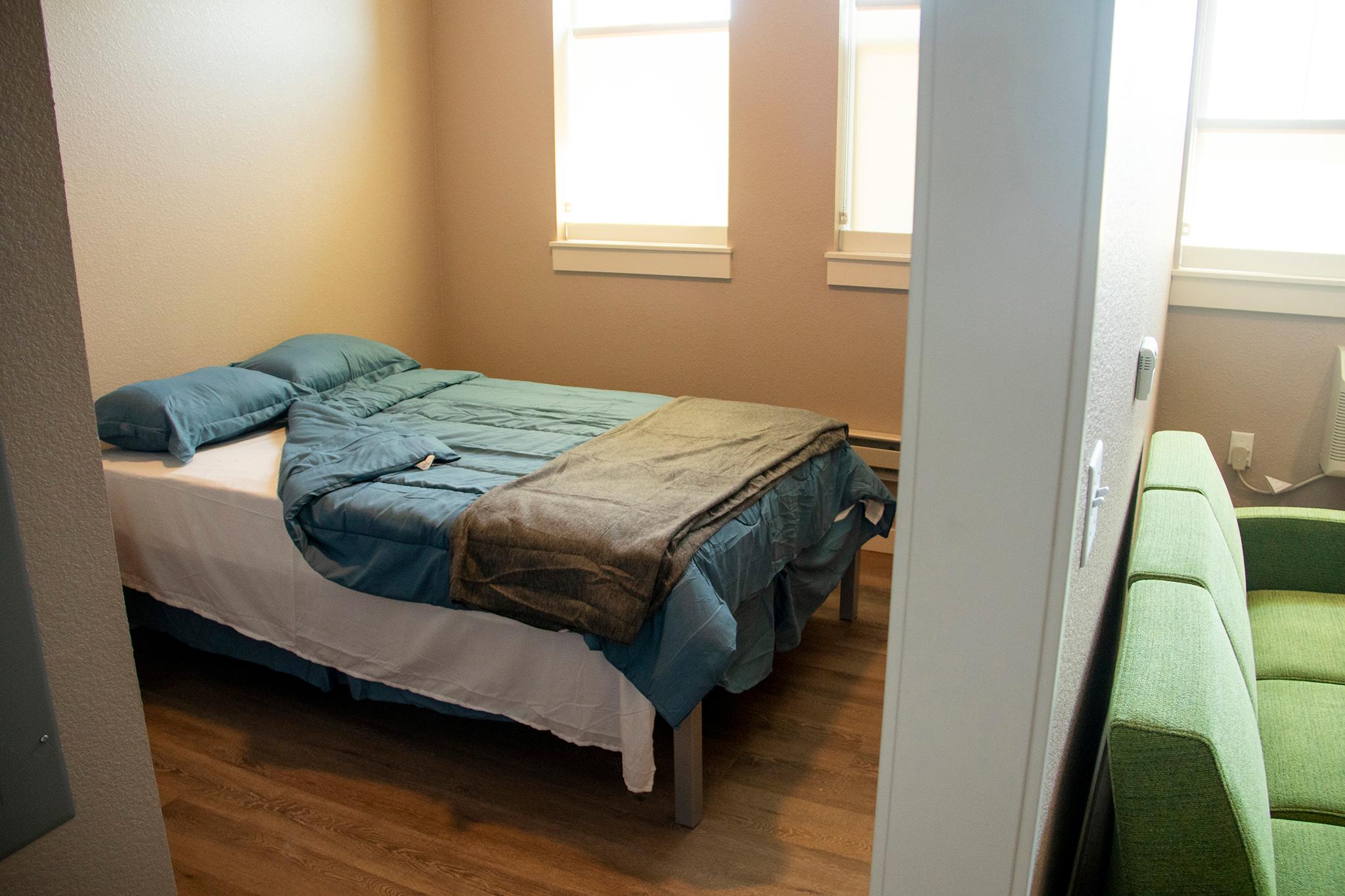On Thursday morning, nonprofit and government leaders cut the ribbon at a 50-unit income-restricted apartment complex, at 203 S. Federal Blvd., in the Barnum neighborhood.
The building will house 49 individuals transitioning out of homelessness and serve individuals making up to $24,650 a year -- or 30% of the area median income.
The three-story building is near transit. There's a dog run and a garden. Tenants will have access to meeting rooms where they'll receive social and emotional support.
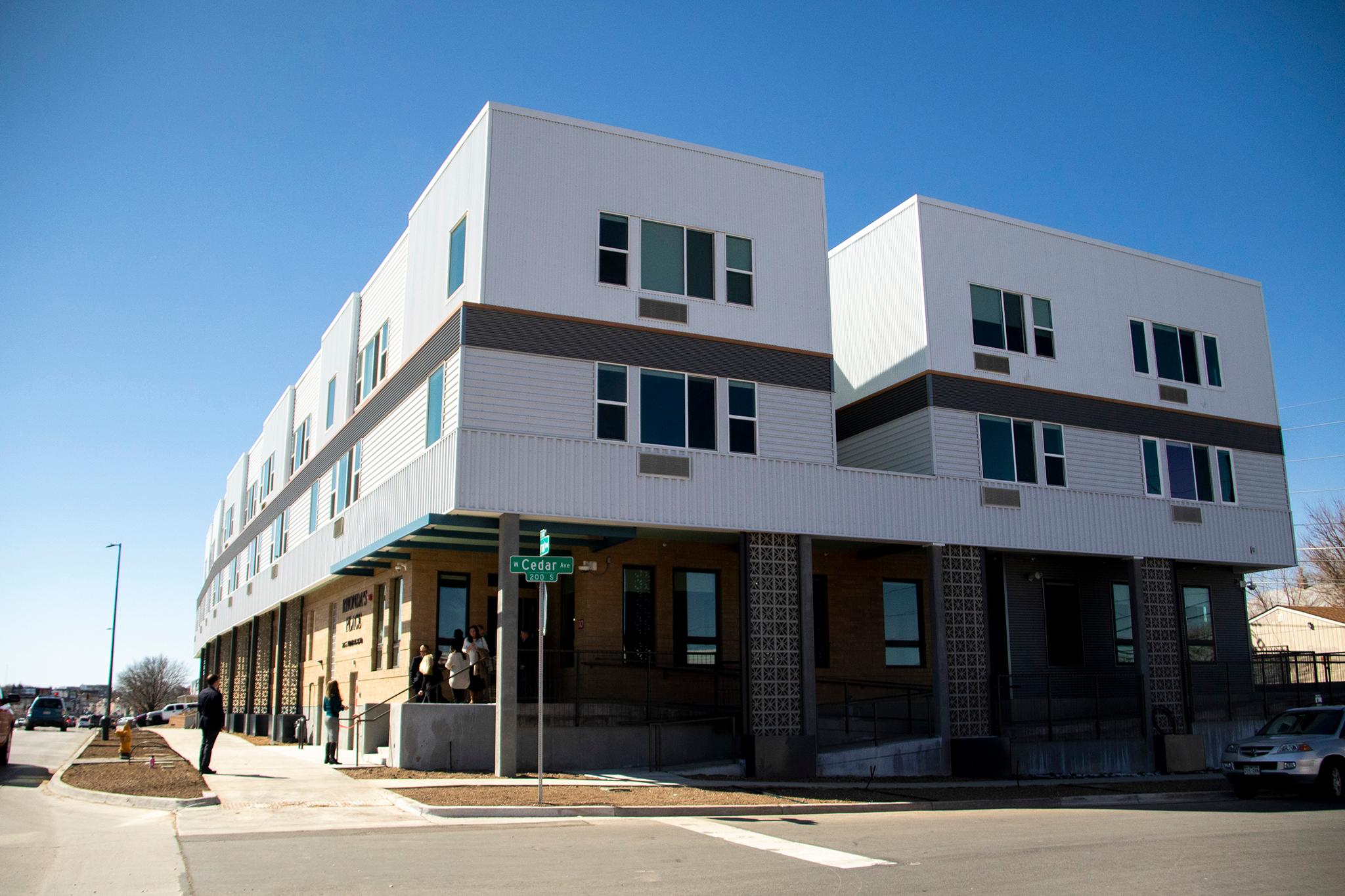
The new building is called Rhonda's Place. It's named after a realtor who served on the board of the project's lead developer the REDI Corporation.
That group has built 10 other projects for people dealing with disability and mental and behavioral health needs since it formed in 1978.
"We're a value-based organization, not just developers," said Sandra Goldhaber, vice president of the REDI board.
The developer's Executive Director David Murphy was honored at the event for his life of service.
"It's been a real joy to create affordable housing for those who need it," he said.
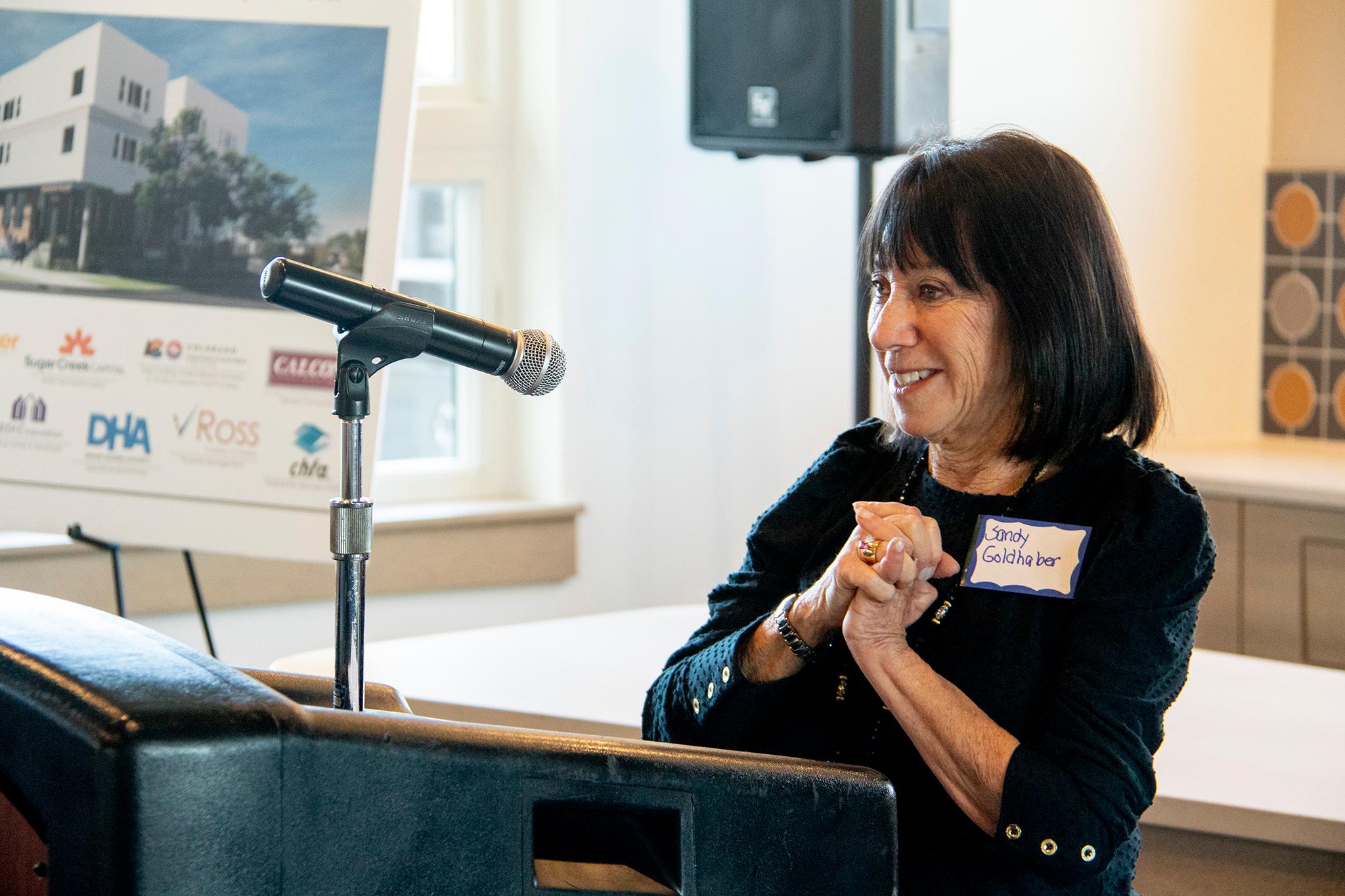
Wellpower, formerly the Mental Health Center of Denver, will offer mental and behavioral health services to residents.
While CEO Carl Clark celebrated the real impact the project will have, he also noted his organization works with 4,000 people who need housing in addition to behavioral health services.
But there's a problem.
"We don't live in a country that believes in everybody having a place to live," Clark said.
And the people he's working with are a fraction of those who need housing across the state.
Kristin Toombs, the director of the Office of Homeless Initiatives for the Colorado Division of Housing, noted 33,000 individuals applied for supportive services last year.
"The volume is real and the need is great," she said.
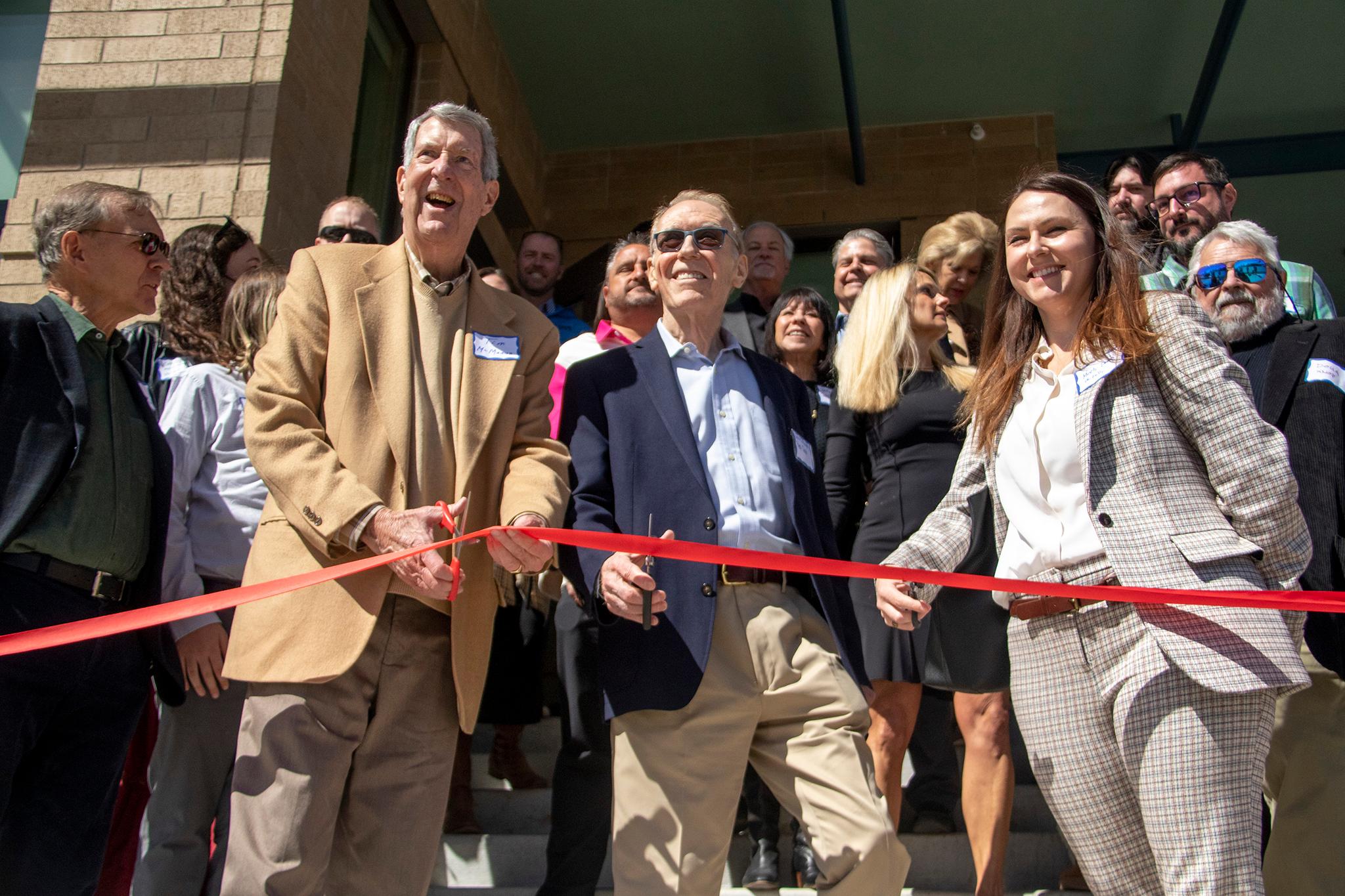
Putting together a project like Rhonda's Place isn't easy.
Financing the $17.3 million budget came from several sources. The city offered $1.5 million from the taxpayer-supported Homelessness Resolution Fund. The Colorado Housing, Finance Authority and the Colorado Division of Housing and private entities also contributed money to the development.
The project has been in the works for several years and broke ground on a chilly day in 2021.
"It takes a lot to get just 50 going," Clark said.
Councilmember Jamie Torres, who serves District 3, where the building is located, spoke about her own experience of homelessness as a teenager and the importance of projects like this that help people transition back into housing.
"The toll that it takes on you is incredibly profound," she said.
She also pointed out that the taxpayers are the ones who funded the project and described the effort as "collective."
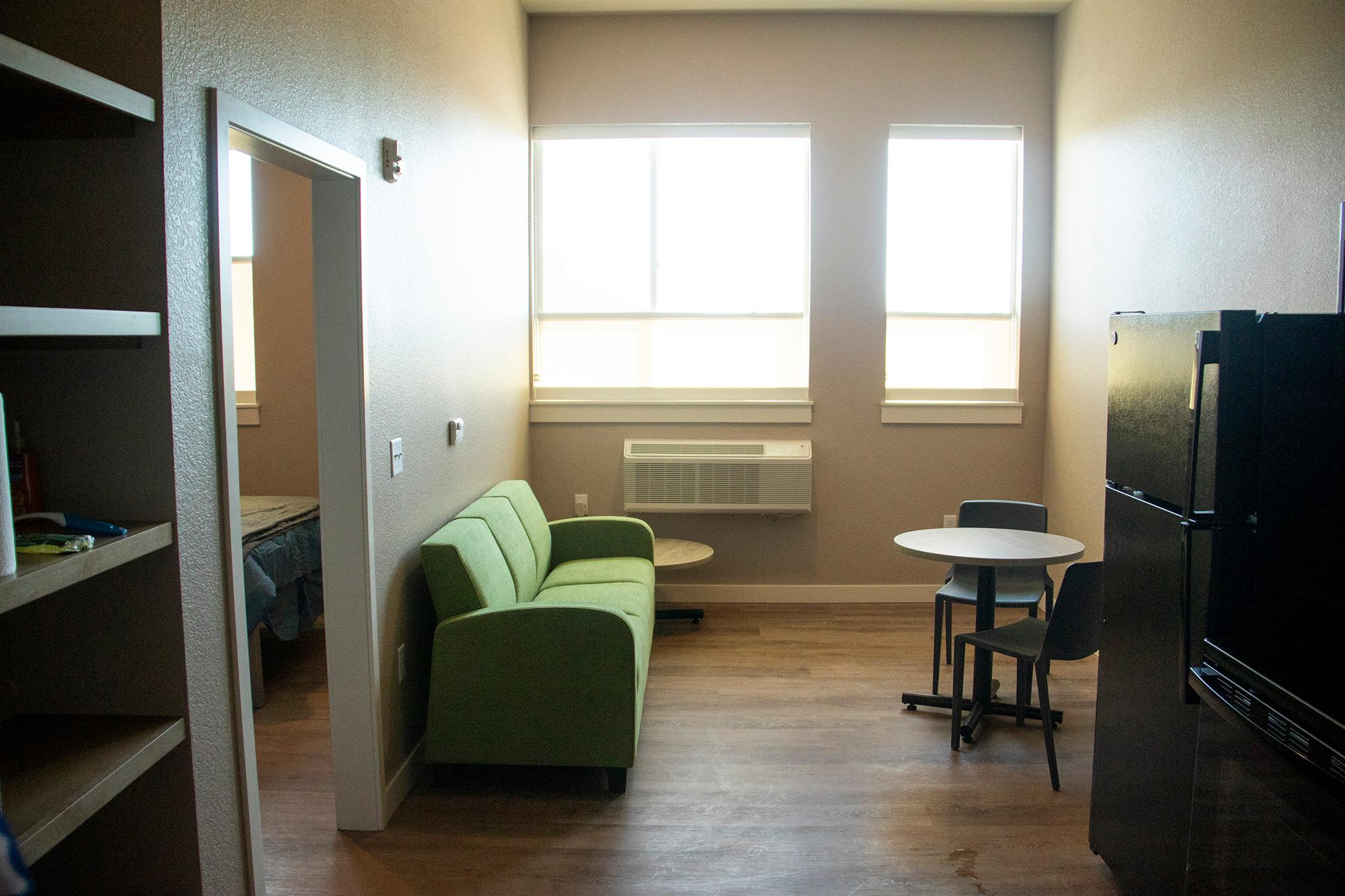
"The solution to homelessness is housing, and projects like Rhonda's Place are bringing stability," said Rene Gallegos, the deputy director of housing for the city's Department of Housing Stability.
Forging public-private partnerships between the city, the state and developers has been Denver's main strategy for creating new housing for people experiencing homelessness.
Denver currently has 1,971 affordable units funded by the city that are under construction at 34 different sites. Another 510 income-restricted units are being planned.
"Government alone cannot do this," Gallegos said. "We need partners."

